Microbes are everywhere, living inside and around us, often within complex and dynamic communities that underpin the health of our bodies and of natural ecosystems. The need to understand and predict microbial evolutionary dynamics has never been more urgent. The rise of antimicrobial resistance is a crisis caused by the evolutionary adaptation of microbes to our use of antibiotics. How microbes respond to global change will shape critical biogeochemical processes in oceans and soils. Solutions to these and many other emerging issues will require an in-depth understanding of the evolutionary dynamics of microbial communities, to enable us to predict and manage their responses to selective pressures and to design robust biotechnological solutions.
The meeting is intended to strengthen collaborative ties between researchers working in the diverse field of microbial evolution, both in the UK and overseas. There will be invited talks on a range of topics including drivers and dynamics of (pan)genome evolution, microbiome evolution, predicting microbial evolution, and the applications of microbial evolution. In addition, the meeting will provide opportunities for early career researchers to present their work in the form of contributed talks and poster presentations and to build their collaborative networks.
Organising committee:
Key topics
As part of the preparations for returning to delivering in-person events, Microbiology Society Council members and members of the Virus Division have worked with Society staff to develop a framework of mitigations for the Society to apply to all of its events throughout 2022, in order to ensure that these are as COVID-secure as possible.
Implementation of this framework is a shared responsibility; shared between the Society, the venues we use for our events, and all potential attendees. Attendance at any of our events is a personal choice, but it will be incumbent on all of us to deliver these mitigations in order for us to keep all delegates and staff as safe as we can.
The framework covers the following five areas.
The following mitigations will be implemented for all those attending a Focused Meeting in 2022. The Society staff will continue to consult with the organising committee in the lead up to the event and these mitigations will be kept under review and may be amended to ensure they remain appropriate as circumstances change.
Mitigation area
Vaccines
All attendees are required to be fully vaccinated with an approved vaccine against COVID-19 to attend a Focused Meeting in 2022. For many individuals, this will mean a primary course and booster vaccine, and with the booster administered at least 14 days before the meeting. However, if you do not meet this requirement or if you have any concerns around your vaccination status, please get in touch with us to discuss it further by emailing [email protected]
You can find further information on vaccines on the World Health Organization (WHO) COVID-19 vaccine advice page, which includes a list of vaccines that have been approved for use against COVID-19.
Ventilation
Best efforts will be made to promote the circulation of fresh air into each Focused Meeting venue. This will include use of air conditioning, if available at the meeting venue, or opening of doors and windows during appropriate intervals in the event programme if possible.
Masks
FFP3 masks will be provided to all individuals attending a Focused Meeting in 2022 and everyone will be expected to wear them inside the meeting venue, except when eating or drinking and except for those that have medical exemptions.
Testing
Attendees will be provided with LFT devices and are expected to test themselves daily before entering the meeting venue.
Spacing
All attendees are reminded to adhere to social distancing where possible, particularly during communal activities such as lunch and poster sessions.
Further information will be announced in the build up to the meeting on our social media channels and you can follow us on Twitter @MicrobioSoc using the hashtag #MicroEvo22
The programme of invited speakers for the meeting include:
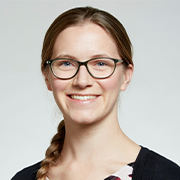
Helen Alexander is a Royal Society University Research Fellow (group leader) at the University of Edinburgh, Institute of Ecology & Evolution. Previously, she studied applied mathematics at the University of Western Ontario and Queen’s University in Canada, before completing a PhD in theoretical biology at ETH Zurich and a postdoctoral research fellowship at the University of Oxford. She has long-standing interests in infectious disease dynamics and microbial evolution, and a particular fascination with elements of chance in these dynamics – how mutations arise and initially spread or die out. One area of recent focus is the evolution of antibiotic resistance, particularly how it is affected by bacterial ecology and antibiotic dosing. Her group continues to study these topics by combining mathematical modelling, experiments with bacteria, and statistical inference.
Twitter: @HelenKAlexander
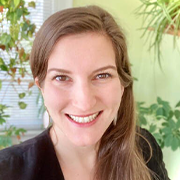
Alita Burmeister is an Assistant Professor in the Department of Biological Sciences at the University of Wisconsin (UW) Milwaukee. Her research combines microbiology and evolutionary biology to understand how bacteria and phages interact, from molecular mechanisms to the ecology of phage resistance. After finishing her bachelor’s degree in Bacteriology at UW Madison, she first started studying phage resistance in industry, as a cheese microbiologist working on lactic acid starter cultures. Then, during graduate school at Michigan State University, she researched the evolution of novel infection mechanisms in phage lambda. She recently finished her postdoc at Yale University, where she established E. coli and phage U136B as a new model system for understanding relationships between phage resistance and antibiotic resistance, now a focus of her new research lab in Milwaukee.
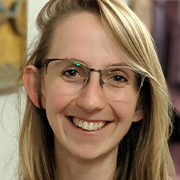
Dr Kat Coyte is a Presidential Research Fellow at the University of Manchester, where her research focuses on the development of novel experimental and theoretical methods to study the ecology and evolution of microbial communities. Kat is particularly interested in the factors that govern the dynamics of the gut microbiome, and investigating the role environmental complexity plays in how microbes interact and evolve.
Kat received her PhD in Systems Biology from the University of Oxford in 2016, studying the ecological and evolutionary stability of microbial communities. She then moved first to Memorial Sloan Kettering Cancer Center, then Harvard Medical School on a Sir Henry Wellcome Fellowship studying early-life microbiome dynamics, before moving to Manchester in late 2019.
Twitter: @katcoyte
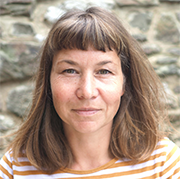
Dr. Hesse completed her PhD in Plant Evolutionary Ecology from the University of Fribourg (with Heinz Müller-Schärer). She won a postdoctoral stipend to investigate sexual system evolution (with John Pannell, University of Oxford), after which she moved to the Netherlands to investigate crop ferality (with Tom de Jong, Leiden University). Following several career breaks, she became fascinated with the role of microbes in ecosystem health. This led her to move to the University of Exeter in Cornwall as a research fellow, working with Angus Buckling, where she developed a research program applying evolutionary theory to help mitigate pollution from mine waste. She is a passionate scientist, fascinated by the interplay of biotic interactions in ecology and evolution, having employed various model organisms (plants, bacteria and viruses) and techniques (field surveys, evolution experiments, statistics and genomics). She uses art-science collaborations to convey the important roles microbes play in our lives. Dr Hesse is currently a UKRI Future Leaders Fellow, using evolutionary theory to help restore mine-degraded soils.
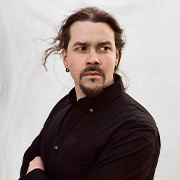
My lab is interested in eco-evolutionary dynamics of species interactions in multi-trophic communities. We use two main study systems in our research. First, model cystic fibrosis lung microbiomes that focus on understanding the evolution of Pseudomonas aeruginosa bacterial pathogen by antibiotics, other co-occurring bacteria and lytic phages. Second, a tomato rhizosphere microbiome model that focuses on elucidating the ecology and evolution of bacteria-phage-plant interactions in the rhizosphere, using Ralstonia solanacearum plant pathogenic bacterium, a causative agent of bacterial wilt disease, as the focal species. Studying these eco-evolutionary processes is important for understanding bacterial disease dynamics in agricultural and medical contexts and developing new ways to control infections. To achieve this, we combine experimental evolution with environmental and clinical sampling, field and greenhouse experiments, genome sequencing, omics and bioinformatic analysis.
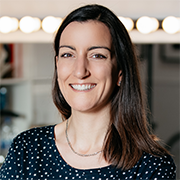
Dr Elisa Granato is a Research Fellow at the University of Oxford (Department of Biology). Her research focuses on understanding how bacteria interact, how these interactions evolve, and how they affect microbial communities. She completed her PhD at the University of Zurich in 2017, studying the evolution of cooperation and virulence in the opportunistic pathogen Pseudomonas aeruginosa. She then shifted her focus to interbacterial warfare and moved to the University of Oxford. In her postdoctoral work, she applied fluorescence imaging techniques to study cell-suicidal toxin release in Escherichia coli, and to explore how bacteria can protect themselves from attacks by the type VI secretion system. In 2021, Dr Granato was awarded a BBSRC Discovery Fellowship to study the impact of horizontal gene transfer on bacterial warfare.
Twitter: @Prokaryota
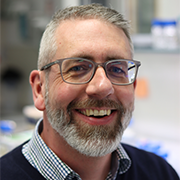
Christian Kost is a professor of ecology at Osnabrück University in Germany. He is mainly interested in understanding the ecology and evolution of metabolic interactions within microbial communities. Combining experimental with theoretical approaches, his group analyses the causes and consequences of microbial interactions at both a cellular and a community-level using synthetically engineered as well as naturally evolved bacterial strains. Currently, his research focusses on aspects of multicellularity and collective behaviours within microbial communities, synergistic coevolution among interacting genotypes, the dynamics within ecological interaction networks, and the molecular drivers of metabolic cross-feeding interactions.
In 2006, Christian received his PhD at the Max Planck Institute for Chemical Ecology in Jena working on plant-plant communication and plant defence mutualisms. After a two-year postdoc at Massey University in New Zealand, where he worked on the experimental evolution and genomics of Pseudomonas bacteria, he returned in 2009 to the Max Planck Institute in Jena to establish his own group. In 2016, he was appointed as professor at Osnabrück University.
Twitter: @KostChristian
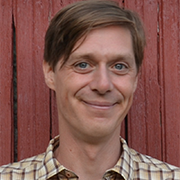
Peter Lind is currently Assistant Professor at Umeå University, Sweden. His research focuses on the predictability of evolution on different biological levels using biofilm formation at the air-liquid interface and antibiotic resistance in Pseudomonas as model systems. Modelling and bioinformatics are combined with experimental data to make predictions that are then tested by experimental evolution in the lab. Peter did his PhD with Dan Andersson at Uppsala University studying mutational biases and the fitness effects of mutations and horizontal gene transfer. Then he worked with Paul Rainey, at Massey University, for his postdoc on the diversity of genetic and phenotypic experimental evolution.

I work at the Organismal and Evolutionary Biology Research Programme, Department of Computer Science and Institute of Biotechnology. My group develops evolutionary theory and its applications to solve problems such as drug resistance. In particular, I try to understand how predictable evolution is and how and to what extent evolving populations can be controlled. My group further develops bioinformatic algorithms needed to analyse big biological data sets. Our work is fundamental science that can lead to applications relevant to human health, for example, in the context of infectious disease and the evolution of drug resistance. We work across different scientific disciplines and have a record of successful research collaborations working together with clinicians and experimentalists.
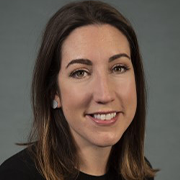
I am an Assistant Professor in evolutionary microbiology at Trinity College Dublin. My research focuses on species interactions in microbial communities and the implications for virulence and antimicrobial resistance evolution. After my BA in Zoology at Trinity College Dublin, I moved to the University of Exeter to carry out a PhD in Angus Buckling’s laboratory. I carried out two postdoctoral fellowships at the University of York with Mike Brockhurst and ETH Zürich with Greg Velicer. In 2019, I started my own group at the University of Liverpool, funded by a BBSRC Discovery fellowship, before returning to Trinity College Dublin in 2021 as an Assistant Professor.
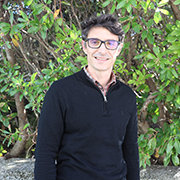
Álvaro San Millán, D.V.M., Ph.D., is a Group Leader in the National Centre for Biotechnology in Madrid. He obtained his doctorate at the Complutense University of Madrid in 2010, working on plasmid-mediated antibiotic resistance in zoonotic bacteria. As a postdoc, he worked for 4 years at the Department of Zoology of the University of Oxford, analysing the evolutionary bases of plasmid-mediated antibiotic resistance. In 2016, he started his research group in the Department of Microbiology at Ramon y Cajal University Hospital in Madrid, where he started a project focused on the study of the evolution of plasmid-mediated antibiotic resistance in patients and the hospital setting. In 2020, Dr San Millán joined the Spanish National Centre for Biotechnology as a Tenured Scientist in Plasmid Biology. Dr San Millán is interested in understanding the role of plasmids as catalysts of bacterial evolution, with a special focus on the evolution of plasmid-mediated antibiotic resistance in clinical settings.
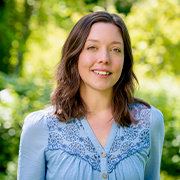
Tiffany Taylor is a Senior Research Fellow in the Milner Centre for Evolution at the University of Bath (Department of Life Sciences). Her lab group uses experimental evolution with Pseudomonas fluorescens in combination with molecular techniques to understand how features of the genome constrain adaptive outcomes. Her group focuses on two study systems: firstly, resurrection of the flagellar via gene regulatory network rewiring, and secondly, the evolution, maintenance and regulation of bacterial defence systems.
Tiffany obtained her DPhil from the University of Oxford with Angus Buckling working on the evolutionary ecology of dispersal under kin selection using Pseudomonas aeruginosa as a model organism; then moved to the University of Reading to do a postdoc with Louise Johnson and Robert Jackson, where she developed the P. fluorescens model system she uses now. She was awarded a Royal Society Dorothy Hodgkin Fellowship in 2016 and started her lab group at the University of Bath.
Twitter: @TaylorLabGroup

Hildegard Uecker is a group leader at the Max Planck Institute for Evolutionary Biology in Plön. Her group develops mathematical models to study which factors promote or hamper (rapid) adaptation to changing environments and to understand the role of stochasticity in the adaptive process. The current main focus of the group is the development of population genetics models for bacterial adaptation and the evolution of antibiotic resistance.
During her PhD in the group of Joachim Hermisson at the University of Vienna and a first Postdoc in the group of Nick Barton at IST Austria, Hildegard worked on extending population genetics theory by eco-evolutionary dynamics with a focus on models of evolutionary rescue. Since she got more and more interested in the evolution of drug resistance as an instance of undesired evolutionary rescue, she decided to do a second Postdoc in the group of Sebastian Bonhoeffer at ETH Zurich, where she studied epidemic models for drug resistance evolution. In 2017, she became a group leader at the MPI for Evolutionary Biology.
Twitter: @HildegardUecker

Lucy is a Wellcome Trust and Royal Society Sir Henry Dale research fellow at the University of Cambridge. She was awarded her PhD in evolutionary biology at the University of Edinburgh in 2008 on endosymbionts (Rickettsia) in ladybirds. During postdoctoral research at Edinburgh, University Montpellier II, Imperial College and UCL, Lucy studied genome evolution in a range of viruses and bacteria. She began her own research group at the Vet School as a Royal Society Dorothy Hodgkin research fellow in 2015.
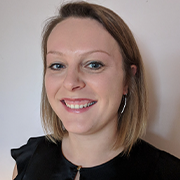
Fiona J Whelan is an Anne McLaren Research Fellow at the University of Nottingham where her group focusses on the interactions between microbes and their genes within mixed microbial communities. The Whelan lab uses a combination of bioinformatic, molecular evolution, and microbial techniques to study microbial communities at the level of community-level metagenomic data, species-level pangenomes, and single-strain colonies. Before starting her own group in 2020, Fiona completed a PhD at McMaster University focussing on using culture-enriched metagenomics to study the respiratory microbiome and a Marie Skłodowska-Curie Fellowship at the University of Nottingham on identifying co-occurrence relationships between genes in microbial pangenomes.
Registration is now closed.
Online registration for the Understanding and Predicting Microbial Evolutionary Dynamics meeting is now open. Microbiology Society members get heavily subsidised registration fees for focused meetings, annual conference and other society events. Join now to enjoy these discounts and many other opportunities that are designed for microbiologists at all stages of their career.
| Early Bird | Full rate | |
| Student member | £210 | £260 |
| Concessionary member | £300 | £350 |
| Full member | £355 | £405 |
| Non-member | £455 | £505 |
Abstract submission is now closed.
Both members and non-members of the Microbiology Society are welcome to submit an abstract for the meeting. All offered oral presentations and posters will be selected from the abstracts submitted. Once submissions are closed, they will be reviewed by the organising committee and submitters will be notified of the outcome by email on 20 September 2022.
By submitting an abstract to this meeting, you are indicating to the session organisers your commitment to attend the event.
Abstracts must be a maximum of 250 words. The Society has produced a guide to give delegates some tips on how to write a great abstract, which can be downloaded below:
Please note that the abstract is the only information session organisers use when deciding whether to accept your work for presentation as an offered oral or poster. If accepted, it will also be published in the abstract book for the meeting – so think carefully about what needs to be included.
Microbiology is pleased to provide the Outstanding Science Prize to a scientific poster at the ‘Understanding and Predicting Microbial Evolutionary Dynamics’ meeting. The winner, selected by members of the organising committee, will win a cash prize and be featured on the Microbe Post. All posters displayed at the meeting are automatically entered for the prize.
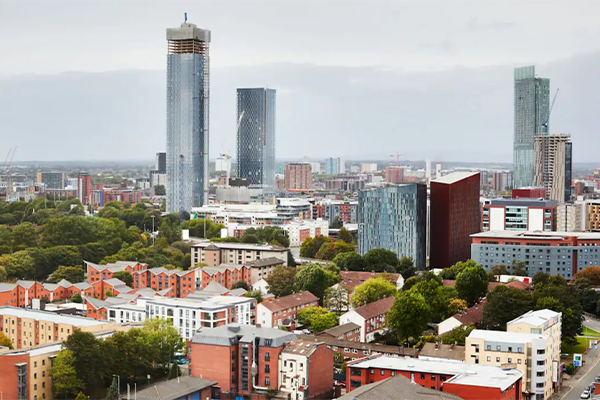
Discounted rooms at the Hyatt Regency Manchester are now fully booked.

Carbon footprint offsetting
Delegate travel is the biggest contributor to the carbon emissions involved with Focused Meetings, we would therefore like to encourage all delegates to offset their carbon footprint.
A carbon offset is a way to compensate for your emissions by funding an equivalent carbon dioxide saving elsewhere.
You can calculate and offset your carbon footprint from travelling to the meeting by using this carbon calculator, this supports international projects and sustainable development worldwide.
Society Conference Grants are available to support those wishing to attend this meeting. Applications for this scheme are now open and will close on the 14 October 2022.
We are aware of ongoing uncertainty around event attendance as the pandemic continues. To find out more about our grant refund policies, please visit our Grant Rules page.
Please contact [email protected] for any questions
Please contact [email protected] to enquire about exhibition and sponsorship opportunities.

|
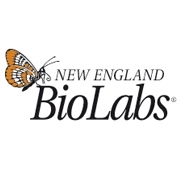
|